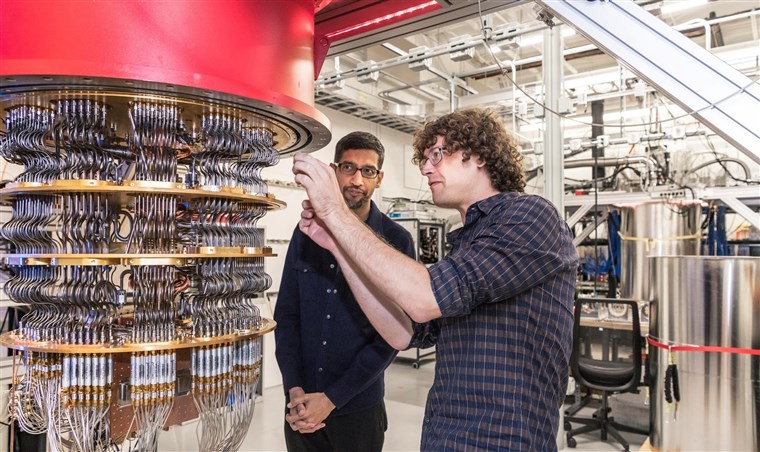What is Quantum Compute? Why it Matters?
QUANTUM COMPUTE
7/22/20223 min read


This article will help you understand what Quantum Compute is and why it matters.
What is Quantum Compute?
To know how Quantum Compute works, we need to first understand how classical computing works. A classic, ordinary computer chip uses bits. Bits are like switches, where a bit can either be in the OFF position (represented by a 0) or in the ON position (represented by a 1). Anything the computer does is represented by millions of bits in a combination of 1s and 0s. So ordinary computers work in a very binary way, either 1s or 0s.
But what if bits did not have to be binary? In nature, things are not always binary and for bits, well that’s where quantum mechanics comes in. As scientists discovered in the 20th century, when we go down to the very small scale of atoms and subatomic particles, classical physics breaks down. This led to the development of Quantum mechanics to describe reality at the tiniest of scales. At the quantum scale, probabilities reign supreme and simple toggles of ON or OFF states give way to more complex phenomena. At this scale, a different type of computing is possible that can take advantage of non-binary states, such as quantum bits existing as 0 and 1 at the same time, or somewhere on a spectrum between 0 and 1-- this is called Quantum Compute. As the counterpart to the binary bits of classical computing, these quantum bits are called “qubits”.
Quantum Compute has two features: 1) Superposition 2) Entanglement.
Superposition refers to the feature that qubits can be 0 and 1 at the same time, or somewhere on a spectrum between 0 and 1. If you ask a normal computer to figure its way out of a maze, it will try every single branch in turn, ruling them all out individually until it finds the right one. A Quantum Computer can go down every path of the maze at once.
Entanglement means that two qubits link together in a certain way and changing the state of one qubit will instantaneously change the state of the other one in a predictable way no matter how far apart they are physically. Entanglement allows Quantum Computers to increase number crunching abilities exponentially using specially designed quantum algorithms.
Why Quantum Compute Matters?
Reason 1: Quantum Computers will be even more powerful than the world's fastest classical computers.
Scientists have been trying to prove quantum supremacy, a term coined by Caltech physicist John Preskill in 2011, which he described as “the point where Quantum Computers can do things that classical computers can’t, regardless of whether those tasks are useful.” Later some researchers in the field also call it “quantum advantage” to avoid echoes of “white supremacy.”
In 2019, Google made headline that they established quantum supremacy in an article they published in Nature. Google claimed that it would take a state-of-the-art supercomputer 10,000 years to generate a collection of numbers, while it took their Quantum Computer Sycamore only 200 seconds. A month later, IBM challenged Google's claim and argued that the classical supercomputer could solve that problem in 2.5 days with better algorithms. Even if it only takes a classical supercomputer only 2.5 days, it is still much slower compared to the Quantum Computer Sycamore which only takes 200 seconds.
In December 2020, a team from University of Science and Technology of China also announced quantum advantage in the Science Journal. They claimed that a photonic Quantum Computer, which harnesses particles of light or photons, can perform a calculation in 200 seconds that would take more than half a billion years on the world’s fastest non-quantum or classical computer.
Reason 2: Quantum Compute will profoundly impact cybersecurity.
Quantum Computers can crack current password encryption. So whoever has the first Quantum Computers can crack the existing passwords. Because of this reason, military and intelligence departments of major countries are all very interested in Quantum Compute. The US Congress passed National Quantum Initiative Act (NQI) in 2018 to accelerate quantum research and development. Since then, NQI has received a total of $2.6 billion government funding. EU has invested $7 billion and China has invested $15 billion in Quantum Compute per McKinsey.
Despite all the investment and interests in Quantum Compute, it is still a very young field, and a lot of research are still in theory. There still has not been a commercially developed Quantum Computer yet. Scientists still haven't figured out if Quantum Computers are better than classical computers for practical use either. But we should expect a lot of new developments in this area in the near future.
Google Quantum Computer Sycamore
